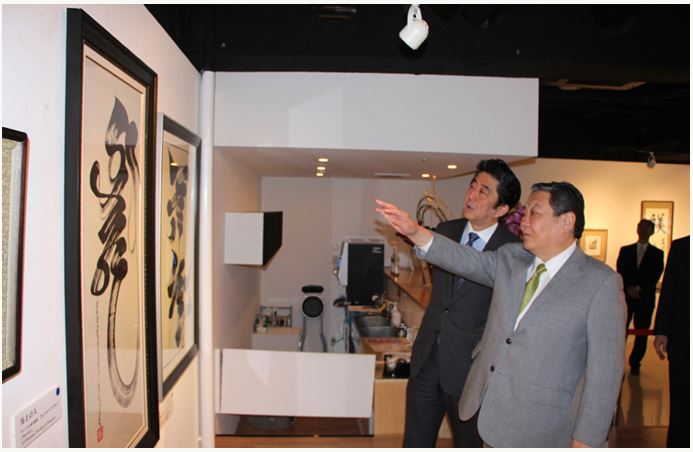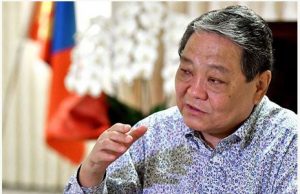Japan says Mongolia is the most important partner in Northeast Asia

The Mongolian Economy magazine has interviewed Extraordinary and Plenipotentiary Ambassador of Mongolia to Japan S. Khurelbaatar.
-What significant events have happened during the 45-year history of Mongolia and Japan? What is the level of people and political relations between the two countries?
-Over the past 45 years, relations between Mongolia and Japan have considerably changed. In the first half of the historical period, the bilateral relation was limited due to difference of the social structure and ideology of the two countries. But I would like to say that the foundation of today’s warm relationship has been laid out in this period. In the course of that time, the relations between parliaments and the foreign ministries had been developed more actively. As a result, an economic cooperation agreement of 5 billion Yen was concluded, thus a “Gobi” cashmere factory was set up. The key significance was to develop the bilateral economic collaboration by building the Gobi factory. Before the establishment of the cashmere plant, trade turnover between the two countries was around USD one million. Since then, the bilateral trade has rapidly grown. In September 1974, an agreement was established to promote cultural relations; accordingly, it launched a cultural exchange program once every two years. In doing so, it has laid a foundation for training Mongolian students and lecturers in Japan or Mongolia. I would like to emphasize that after the Second World War, Japanese prisoners of war were returned to their homeland from Mongolia.
 At the initiative of those Japanese soldiers, a Japanese Mongolian Society was founded in 1957. Since the democratic revolution in Mongolia in 1990s, the relationship between the two countries has greatly improved. Since then, the two countries have actively developed an open, broad-based relations in all sectors. There are several important things that affect this relations. First and foremost, the interests of the two countries coincided at one point. Mongolia’s social and economic relations with the USSR were broken away. So we needed a partner country to support, assist and cooperate with Mongolia after democracy. That country was Japan. Moreover, it also linked to the values of freedom, human rights, democracy and market economy. Due to these factors, the bilateral relations have strengthened since the mid-1990s. In October 2010, President of Mongolia Tsakhia Elbegdorj visited Japan and said, “We need to develop bilateral ties in the next phase and expand strategic partnership the highest level and at all levels. Secondly, it is directed at developing the mutually beneficial trade and economic relations. The third is strengthening the bilateral cultural, educational, sports, public and community relations. Currently there are more than 7,000 Mongolians studying and living in Japan. Of which, about 1,800 are students. In addition, a program is underway to train Mongolian students in engineering field under the Japanese Government’s educational loan program. In terms of development of art and cultural relations, there are variety of performances organized in each country; Mongolian national art groups make performances in Japan three or four times a year. The Japanese art classics also have a great deal of collaboration with Mongolian artists.-Could Today, Japan con siders Mongolia as the most important partner in North east Asia. you please summarize the last five years of cooperation? In the past, high-level mutual visits have become more frequent. Mongolia’s Prime Minister and the Speaker of Parliament each visited Japan twice. It shows how active relationships are held at the political level. The main significance is laying the relations”. Accordingly, Mongolia and Japan relationship has been successfully developed. As a result, a Mongolia-Japanese medium-term strategic partnership program was established in 2013. It has been successfully implemented. Today, next five-year mid-term program has been approved. All of these show that there have been the positive outcomes.
At the initiative of those Japanese soldiers, a Japanese Mongolian Society was founded in 1957. Since the democratic revolution in Mongolia in 1990s, the relationship between the two countries has greatly improved. Since then, the two countries have actively developed an open, broad-based relations in all sectors. There are several important things that affect this relations. First and foremost, the interests of the two countries coincided at one point. Mongolia’s social and economic relations with the USSR were broken away. So we needed a partner country to support, assist and cooperate with Mongolia after democracy. That country was Japan. Moreover, it also linked to the values of freedom, human rights, democracy and market economy. Due to these factors, the bilateral relations have strengthened since the mid-1990s. In October 2010, President of Mongolia Tsakhia Elbegdorj visited Japan and said, “We need to develop bilateral ties in the next phase and expand strategic partnership the highest level and at all levels. Secondly, it is directed at developing the mutually beneficial trade and economic relations. The third is strengthening the bilateral cultural, educational, sports, public and community relations. Currently there are more than 7,000 Mongolians studying and living in Japan. Of which, about 1,800 are students. In addition, a program is underway to train Mongolian students in engineering field under the Japanese Government’s educational loan program. In terms of development of art and cultural relations, there are variety of performances organized in each country; Mongolian national art groups make performances in Japan three or four times a year. The Japanese art classics also have a great deal of collaboration with Mongolian artists.-Could Today, Japan con siders Mongolia as the most important partner in North east Asia. you please summarize the last five years of cooperation? In the past, high-level mutual visits have become more frequent. Mongolia’s Prime Minister and the Speaker of Parliament each visited Japan twice. It shows how active relationships are held at the political level. The main significance is laying the relations”. Accordingly, Mongolia and Japan relationship has been successfully developed. As a result, a Mongolia-Japanese medium-term strategic partnership program was established in 2013. It has been successfully implemented. Today, next five-year mid-term program has been approved. All of these show that there have been the positive outcomes.
– What is the significance of the “Strategic Partnership” established between the two countries?
This partnership consists of five parts. The first is the development of a mutually recognized and trusted political relationship between the two countries at foundation for developing trustful political relations. Furthermore, inter-parliamentary relations have been recently strengthened further through strategic partnership. In addition, friendship groups in each parliament are very active. As a result, investment and trade turnover between the two countries have been increasing.
-The Japanese market is the world market. Mongolian entrepreneurs want to penetrate into this market. What do you think about this possibility? What changes should be made?
-Both parties are interested in expanding investment. Japan is interested in purchasing mining products such as refined coal, fluorspar, gold, uranium, and copper. Of course, the main problem is shipping. If this is resolved, “let’s cooperate”, they say. In addition to mining products, Japan has an interest in buying agricultural and livestock products from Mongolia. But, it needs to take two or three years to adopt a Japanese-standard technology. The Japanese know well that meat from Mongolia is very tasty and nutritious. If Mongolia can process wool, cashmere, skin and hide, Japan is ready to buy it. And dairy products are also relevant to it. From this perspective, Mongolians get familiar with the sectors that are interested in the Japanese economy, so we are facing issues on how to attract investment and what direction we could collaborate with Japan. Therefore, the Mongolian Embassy in Japan is organizing monthly meetings to link business circles of the two countries.
-On the occasion of the 45th anniversary of the establishment of the diplomatic relations between Mongolia and Japan, what would you like to say to the people of the two countries?
Mongolia maintains to boost bilateral relations and cooperation. In 1990s, Japan’s foreign policy towards Mongolia was just a matter of point. Today, Japan considers Mongolia as the most important partner in Northeast Asia. On the other hand, Mongolia’s foreign policy is exactly the same as counting Japan as significant partner for Mongolia. It is necessary to promote bilateral trade and economic cooperation by exploiting all potential resources. I am in full confidence that bilateral cooperation in educational, cultural, scientific and sports sectors will be further expanded. It is also important that the development of direct inter-regional collaboration. Therefore, the both sides should understand and cooperate each other in regard to regional and global issues. The two countries’ diplomats will mobilize all their strength for developing this matter.
/Democratic Mongolia’s first friend 2017.09/
